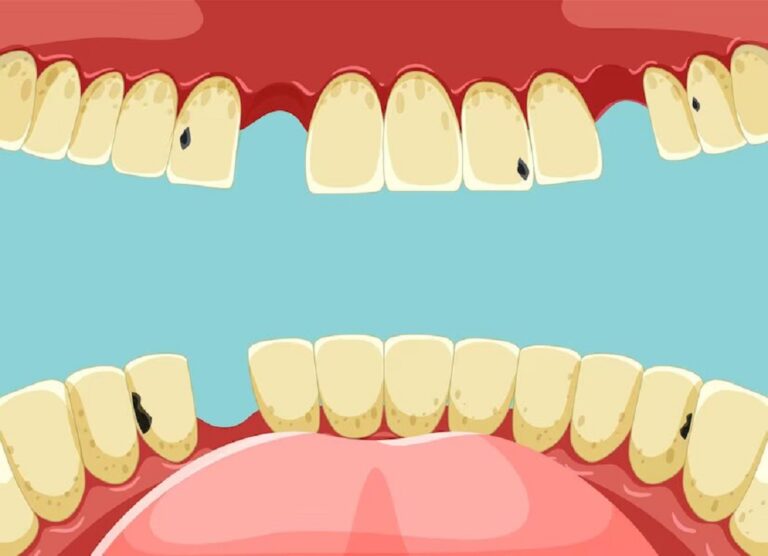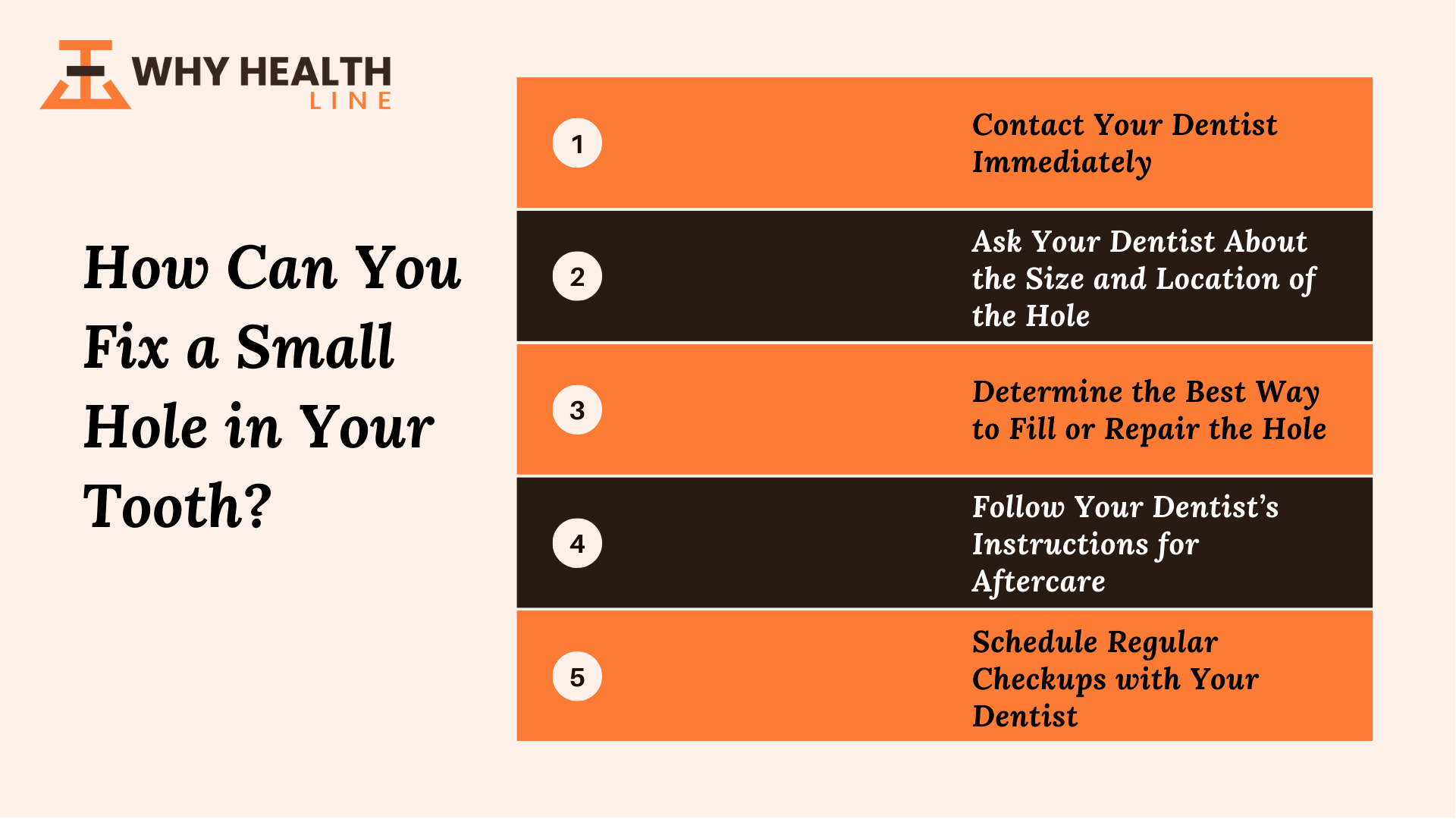
Having a small hole in your tooth can result in frustration and confusion. How did it get there? How can you fix it? What are your options? These are all questions that go through your mind when you find a small hole in your tooth.
The good news is that this problem can be fixed relatively quickly with the right approach. This blog post will guide you about what to do when you find a small hole in your tooth.
We’ll provide all the necessary information on the treatments available, how to get correctly diagnosed, and some tips on preventing the problem from occurring again.
With the proper knowledge and the right approach, you can take control of your oral health and fix the problem in no time.
How Can You Fix a Small Hole in Your Tooth?
If you have a small hole in your tooth, it’s important to get it fixed as soon as possible to prevent further damage to the tooth.
Here are some steps you can follow to fix the hole in your tooth:
1. Contact Your Dentist Immediately
If you notice a small hole in your tooth, you must contact your dentist as soon as possible. This will allow them to examine the area, determine the cause of the hole, and provide you with the best course of action for your particular situation.
Additionally, the earlier you can identify and address the problem, the less costly and invasive the treatment will be.
2. Ask Your Dentist About the Size and Location of the Hole
The tooth is a complex structure, and the size and location of the hole may affect the treatment options available. To ensure the best outcome, it is essential to speak to your dentist about the size and location of the hole.
3. Determine the Best Way to Fill or Repair the Hole
If the hole is small, your dentist can fill it with a composite material. This material is durable and can match the color of your natural teeth.
For larger holes, your dentist may recommend placing a crown to restore the tooth. If the hole is extensive, your dentist may recommend removing the damaged tooth and replacing it with an implant.
4. Follow Your Dentist’s Instructions for Aftercare
Aftercare is a critical component of treating a small hole in your tooth. Your dentist will provide detailed instructions that you should follow to ensure the best results.
Be sure to follow the instructions, such as brushing and flossing regularly, avoiding certain types of food, and taking any medications prescribed.
5. Schedule Regular Checkups with Your Dentist
Oral checkups with your dentist after repeated intervals are essential to maintaining your oral health. Not only will they monitor the health of your teeth, but they can also catch any issues early before they become a bigger problem.
Small holes in your teeth are a sign of tooth decay, which can lead to further damage if left untreated. That is why scheduling regular checkups with your dentist is so important.
This will allow your dental professional to monitor your oral health and diagnose any issues to ensure that they are dealt with appropriately.

Conclusion
In conclusion, acting quickly when you find a small hole in your tooth is essential. Make an appointment with your dentist as soon as possible to diagnose the cause and discuss possible treatments, such as dental fillings or crowns.
Taking care of your teeth can help ensure a lifetime of good oral health and prevent further damage.
FAQs
Are Holes in Teeth Common?
Holes in teeth are quite common, especially among adults. Holes in teeth are caused by the breakdown of tooth enamel by bacteria in the mouth.
According to the World Health Organization (WHO), tooth decay is the most common non-communicable disease in the world, affecting billions of people globally. In the United States, over 90% of adults have had at least one cavity in their lifetime.
Therefore, it is important to take good care of your teeth through regular brushing and flossing, a healthy diet, and regular visits to the dentist to prevent tooth decay and other dental problems.
What Causes Tiny Holes in Teeth?
Tiny holes in teeth are typically caused by tooth decay, which is also known as dental caries. Tooth decay is a bacterial infection that results in the destruction and demineralization of the tooth structure.
The bacteria in dental plaque feed on the carbohydrates and sugars in the food we consume, producing an acid that eats away the teeth’s enamel. Over time, the acid starts to penetrate deeper into the tooth, creating small holes or small cavities.
Poor oral hygiene, a diet high in carbohydrates, a dehydrated mouth, and a lack of fluoride are all risk factors for tooth decay. Genetics can also play a role in the development of cavities, as some people are more prone to oral decay than others.